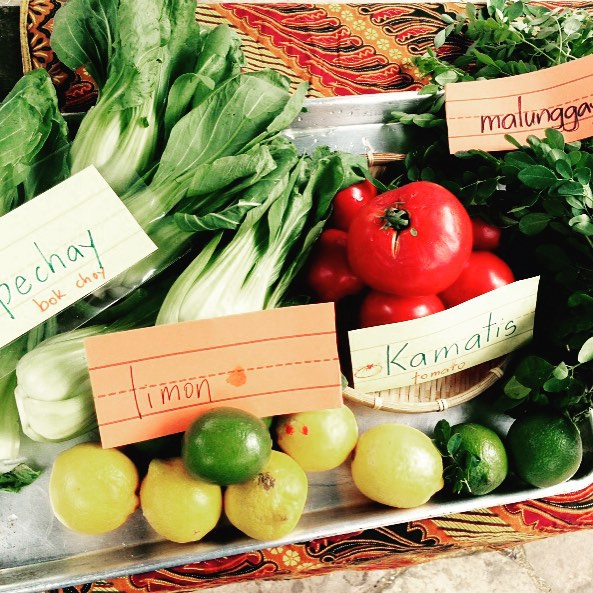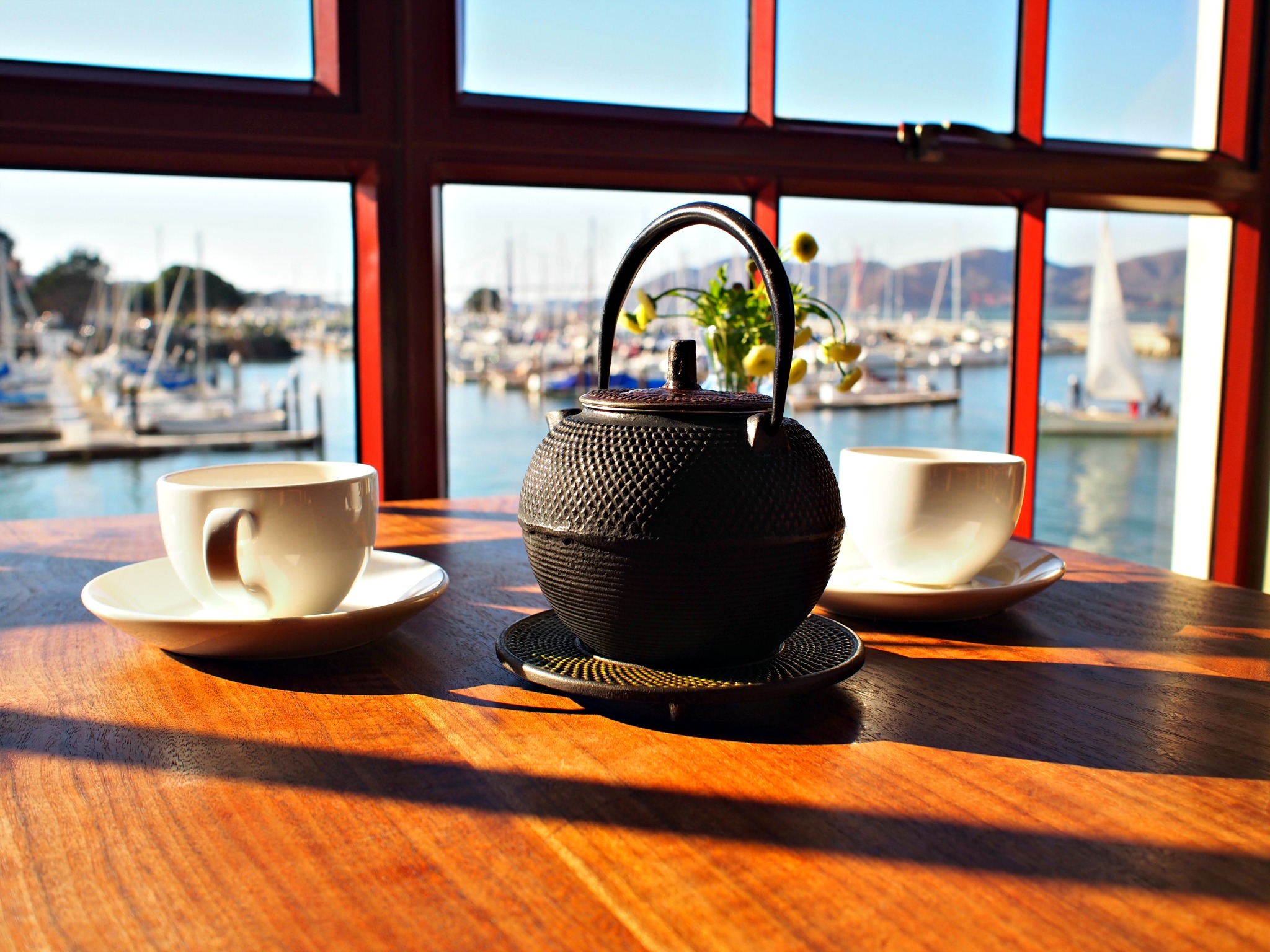Ayhan Aydin is a meal ecologist. His interdisciplinary practice consists of projects that consider art, science and food. He is interested in creating stories through meals and challenging the idea of what a meal is. As a cook, he likes to take ordinary food items and creates something unexpected but still familiar. He is one of the founders of Nordisk Matutveckling AB (Nordic Food Development), a company that creates new food products from Nordic ingredients, applying various culinary traditions to existing foods in order to utilize and repurpose them. His artistic work includes collaborations with OPENrestuarnt, a theater play called “Restaurang Allemansrätten” (the Restaurant Right of Commons) featuring a meal as a central part of the story, and several conceptual dinners. In this episode, Ayhan talks with Devon about making tempeh from Swedish fava beans, what it means to create something new from very old food traditions, and drawing on the richness of immigrant food traditions.
44: The Peoples Kitchen Collective on nourishing a beloved community, from the farm to the kitchen to the table to the street
The People's Kitchen Collective (PKC) works at the intersection of art and activism as a food-centered political education project and cooperative business. Based in Oakland, California, their creative practices reflect the diverse histories and background of collective members Sita Kuratomi Bhaumik, Jocelyn Jackson, and Saqib Keval. Written in their family's recipes are maps of migrations and the stories of resilience. It is from this foundation that they create immersive experiences that celebrate centuries of shared struggle. Collectively cooking and sharing food is sanctified and celebrated community work in many cultures. With the passage of time, systems of imperialism--including capitalism and gentrification--have turned cooking into an inaccessible burden. In response to this inequality PKC has been creating accessible, healthy, and loving food spaces since 2007. Active in Oakland since 2011, they are committed to using local and organic ingredients whenever possible and sharing meals with as many people as we can. The goal of The People's Kitchen Collective is to not only fill stomachs but also nourish souls, feed minds, and fuel a movement. In this episode, PKC talks with Chelsea about nourishing a radical, beloved community, and feeding movement from the farm to the kitchen to the table to the street.
43: Norma Listman on preserving corn traditions and the meztizaje of food cultures in Mexico and California
Norma Listman is a Mexico City and Oakland-based chef and artist. Her practice is shaped by her heritage, and she is most interested in traditional cooking methods and the historical periods of Mexican gastronomy. Norma’s passion for the preservation of her culture and her father’s life-long work with maize have ignited her interest for working with native varieties of the crop. She began her career in some of the most prestigious restaurants of the Bay Area, managing the nationally acclaimed Camino Restaurant and long-time Bay Area institution BayWolf Restaurant in Oakland, before deciding to follow her passion and become a professional chef. As a food scholar she teaches Mexican culinary techniques at 18 Reasons in San Francisco. She currently lives in Mexico City and is focused on her research on Mexican native corn and nixtamalization. In this episode, Norma talks with Chelsea about preserving traditional corn varieties in a changing cultural and economic landscape, and the meztizaje of food traditions in Mexico and California.
41: Aileen Suzara on decolonizing food traditions, and the power of food and food stories to heal
38: Annie Somerville of Greens Restaurant on cooking in a Zen monastery, building relationships with farmers, and supporting workers during a housing crisis
29: Lexa Walsh on meals that bring people together across difference, creating temporary utopias, and collecting recipes for food end everything
Lexa Walsh is a longtime artist and cultural worker based in the Bay Area. She has also lived, worked, exhibited and toured internationally. She founded the experimental music, performance and film venue the Heinz Afterworld Lounge, worked for many years as a curator and administrator at CESTA, an international art center in Czech republic, whose team created radical curatorial projects to foster cross-cultural understanding. She co-founded and conceived of the all women, all toy instrument ensemble Toychestra. She founded and organizes Oakland Stock, the Oakland branch of the Sunday Soup network micro-granting dinner series that supports artists’ projects, and launched the Librarification tumblr, which hosts artist resources. Her silo-busting project Meal Ticket brings people who don't normally eat with each other together for a meal. In this episode, Lexa talks to Chelsea about meals that bring people together across difference, creating temporary utopias, and collecting recipes for food end everything.
28: Jessica Prentice on making a worker-owned and community supported kitchen, and inviting people into their own kitchens with good ingredients
Jessica Prentice is a founder of Three Stone Hearth, a Community Supported Kitchen and worker-owned cooperative in Berkeley, California. She has loved cooking for as long as she can remember. In 1996 she completed the professional Chef’s Training at the Natural Gourmet Institute in New York. She worked as the Chef of the Headlands Center for the Arts in Marin from 1997-2001, where she founded the Headlands Hearth Bakery and Café in 2001. Jessica educated herself in sustainable agriculture issues, and in 2002 was hired as the first Director ofEducation Programs for the Ferry Plaza Farmers Market in San Francisco. Jessica coined the word “locavore” and co-created the Local Foods Wheels. She is the author of Full Moon Feast: Food and the Hunger for Connection. Recently, she has been writing about new and very old models of cooperative work. In this episode, Jessica talks with Chelsea about making a worker-owned and community supported kitchen, and inviting people into their own kitchens with good ingredients
26: Sita Bhaumik on the People’s Kitchen Collective, decolonizing foods and remedies, and magical ingredients that travel the world
Sita Kuratomi Bhaumik is an artist, writer, and educator who understands art as a strategy to connect personal and public histories. Her research focuses on decolonizing the hierarchy of the senses and impact of migration. Raised in Los Angeles and based in Oakland, she is Indian and Japanese Colombian American. Sita holds a B.A. in Studio Art from Scripps College, an M.F.A. in interdisciplinary art and an M.A. in Visual and Critical Studies from California College of the Arts. She is a founding member of the People's Kitchen Collective in Oakland, California along with Jocelyn Jackson and Saqib Keval. Together, they produce community meals that narrate our migration. The goal of The People's Kitchen is to not only fill our stomachs but also nourish our souls, feed our minds and fuel a movement. In this episode, Sita talks with Chelsea about the People’s Kitchen Collective, decolonizing foods and remedies, and magical ingredients that travel the world.
http://peopleskitchencollective.com/
http://blog.montalvoarts.org/blog/flavors-of-resilience-the-peoples-kitchen-collective
http://www.artpractical.com/review/the_other_senses/
http://hyphenmagazine.com/magazine/issue-17-family-spring-2009/spice-war
16: Niki Ford on plant-driven cooking, getting tired of dining, and food at the nexus of creativity and poverty
Niki Ford is an artist, writer and chef. She worked at Chez Panisse for six years, then at the American Academy in Rome as a part of the Rome Sustainable Food Project. As a Culinary Fellow at the Montalvo Arts Center in California, she spent a year testing out a more “plant driven” menu concept in a community of artists from around the world, where she also kept a menu blog called Mountains in my Spoon. She was the opening Chef of Healdsburg SHED, and now works as a freelance chef and food editor for GFF Magazine. Chelsea and Devon met Niki at Salmon Creek Farm, on the Mendocino coast, where she is working on a place-based cookbook with artist Fritz Haeg. Her website is NikiFordCooks.com, and she posts delicious pictures at nikifordcooks on instagram. In this episode, Niki talks to Devon about plant-driven cooking, getting tired of dining, and food at the nexus of creativity and poverty.
9: Niki Nakazawa on cooking as exploration, and eating local in Mexico City
Since moving to Mexico City in 2007, Niki Nakazawa has navigated between the art, architecture, music and food worlds. After several years working as managing editor at art and architecture publishing houses, she founded the experimental pop-up restaurant and catering company Pichón with Emma Rosenbush and Kenny Curran. Pichón is a pop-up restaurant and a project dedicated to culinary research and experimentation. It is inspired by the chinampas of Mexico City, the culinary traditions of the Mexican countryside, and the gastronomic revolution that has transformed food culture. They believe that the best food is prepared with ingredients grown locally and sustainably, and that food should be a vehicle for strengthening community, from its cultivation to consumption. Chelsea talks to Nikki about chinampas, the island-gardens of the Mexican highlands, about what it means to eat local in Mexico City, about cooking as an exploration, and about her recent culinary residency in coastal Oaxaca.
6: Victoria Wagner on the symbiosis of art and baking, and meeting neighbors through food
Victoria Wagner is a visual artist, educator, and baker based in Sonoma County, California. Her work is comprised of organic, multilayered paintings, sculptures and drawings that vacillate between objective and non-objective notions. The main thread of her work is found in tonal vibration, electricity and naive human understanding of the simplicity of the natural world. Recently her work has been shown at Yerba Buena Center for the Arts, Southern Exposure, theLab, Headlands Center for the Arts, Sonoma County Museum, and the DiRosa Art and Nature Preserve. She teaches at the California College of the Arts. This past summer, she ran an experimental biscuit business out of her hatchback called Hello Nomad Roadside Biscuits. In this episode, Chelsea and Victoria talk about the overlap and symbiosis of baking and painting, the selling biscuits in the least likely corners of Sonoma County, and getting to know your neighbors through food.


